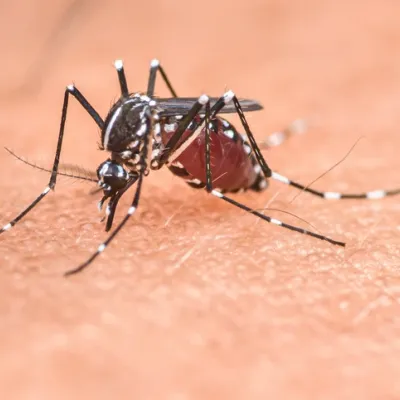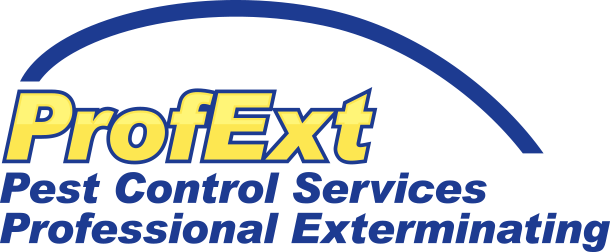
Mosquitoes are biting pests that are associated with the summer season. They are prolific breeders that quickly develop large populations and are challenging to control. Use this guide to learn about mosquito behaviors, their preferred breeding sites, and how best to manage their presence on your property. ProfExt Pest Control offers mosquito control in Madison, Connecticut, that will help you to take back your yard from these biting pests.
In the right environmental conditions, a mosquito egg can develop into a new biting adult in seven days. A single female can lay more than 100 eggs at a time. Another key to the mosquito's success is that its eggs can survive dormant for more than eight months if environmental conditions are not suitable, including over the cold winter months.
Mosquitoes are small flies with narrow bodies. Their body is usually gray and covered in scales; some have white markings. Mosquitoes have long, thin legs that hang below their body when in flight. Their piercing mouthpart (proboscis) allows these pests to feed on liquids.
Your Mosquito Questions Answered
Are Mosquitoes a Health Risk?
Mosquitoes may be tiny and easily squashed with a fly swatter, but they are one of the world’s most dangerous animals. The primary diet of male and female mosquitoes is plant nectar. However, females also require blood meals to complete their life cycles. Unfortunately, as female mosquitoes bite and feed on the blood of different animals and people, they acquire and spread disease. West Nile virus and Eastern equine encephalitis are of most concern in our region.
Mosquito bites themselves are unpleasant; most people experience an allergic reaction to the mosquito’s saliva, resulting in a red, itchy swelling. Constant itching at the bites can lead to scabs, scarring, and secondary infections. Reducing the contact you and your family have with mosquitoes in your yard will make it easier to spend time outside comfortably.
Understanding Your Mosquito Problem
Mosquitoes and standing water go hand in hand. Female mosquitoes lay their eggs on top of standing water or in dry areas prone to flooding. The more standing water you have on or near your property, the more mosquitoes will swarm your outdoor spaces.
Things found in most yards that hold water and act as breeding sites for mosquitoes include:
- Gutters
- Kid toys
- Flower pots
- Buckets
- Wheelbarrows
- Pet water bowls
- Bird baths
Another reason mosquitoes may gather in your yard is because it provides them with areas of shade where they can rest during the heat of the day. Tall grass, overgrown trees, and spaces under decks, woodpiles, and shrubbery are also common resting sites.
Where to Expect Mosquito Activity
Mosquitoes are most active when temperatures are regularly above 50 degrees Fahrenheit. In Connecticut, that makes mosquitoes most problematic during the late spring, summer, and early fall. Mosquito populations tend to explode after melting snow or periods of heavy rain when there is plenty of standing water for female mosquitoes to lay their eggs.
Most types of mosquitoes are active at dusk or dawn when temperatures are cooler. During the middle of the day, they rest in areas of shade to stay out of the direct sunlight.
Effective Strategies to Eliminate Mosquitoes
Significantly reduce the presence of mosquitoes on your Madison area property with the help of ProfExt Pest Control. We offer personalized mosquito control to keep mosquitoes away from your property and prevent them from taking over again in the future. Whether you choose a one-time or ongoing service, we will put together a suitable plan of action. Plan your next barbecue or outdoor event with the knowledge that your family and guests won’t be driven back indoors by biting mosquitoes.
Proven Tips to Prevent Future Mosquito Issues
The best way to help prevent problems with mosquitoes is to limit their access to resting and breeding sites on your property. Use the following tips to help control mosquito populations.
- Keep your grass cut short and remove overgrown weeds from your property.
- Regularly prune shrubs and bushes, cutting them back from your home's exterior.
- Store wood piles away from the outside of your home.
- Keep gutters clear of debris that can allow rainwater to collect.
- Store buckets, flowers, wheelbarrows, and other containers that collect rainwater upside down when they are not in use.
- Do not overwater your property’s gardens and flowerbeds.
- Repair leaky outdoor pipes and faucets.
